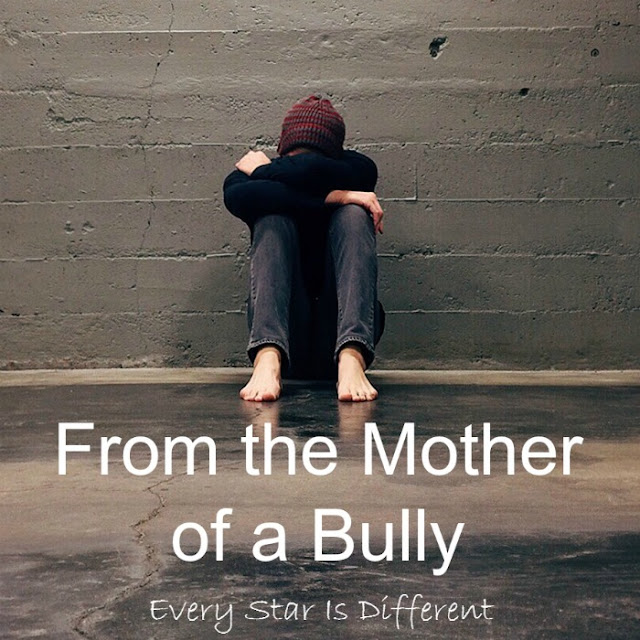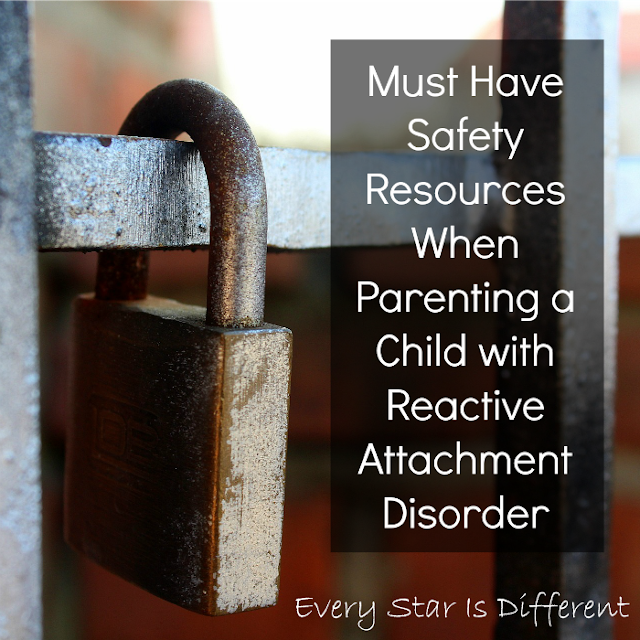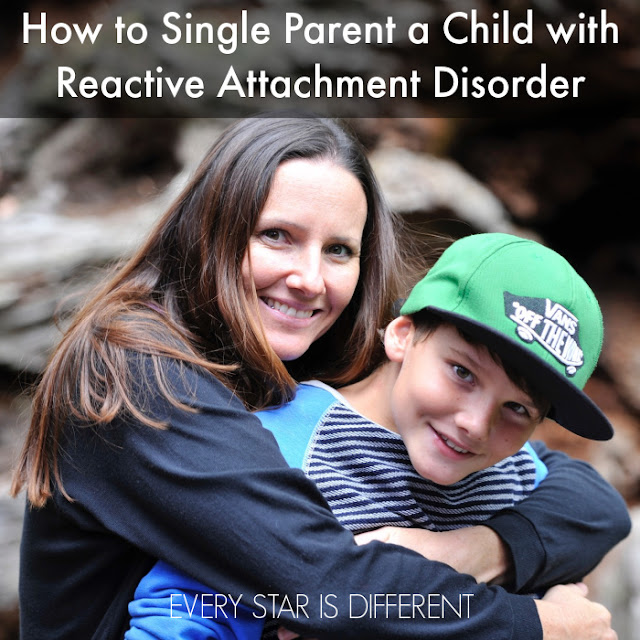I always feel guilty about how our adopted daughters' struggles affect our lives, especially when it comes to our boys.
It's not fair to anyone.
There's a part of me that worries about how the things our boys experience today will affect their relationships in the future.
My biggest fear is that they will develop issues as they experience secondary trauma themselves.
So today I asked my boys how they felt about Reactive Attachment Disorder and sibling relations.
So today I asked my boys how they felt about Reactive Attachment Disorder and sibling relations.
I gave them permission to speak openly.
Their responses were amazing and so unexpected.
Dinomite's first comment was,
"I miss playing with Princess. Remember when we could play in each other's rooms? I wish we could do that again."
Bulldozer chimed in that he missed playing with Sunshine too.
Reactive Attachment Disorder and Sibling Relations
Dinomite's first comment was,
"I miss playing with Princess. Remember when we could play in each other's rooms? I wish we could do that again."
Bulldozer chimed in that he missed playing with Sunshine too.
He recalled times when he used to go into Sunshine's room and play LEGO duplos together.
I was shocked.
I was shocked.
Here I was expecting all of these horribly negative comments.
Why was I feeling so much guilt?
I probed more asking questions about behaviors and safety.
Every time their answers surprised me.
Here I was planning to write a post about how hard RAD is on sibling relations.
Instead, I've spent the remainder of the day trying to figure out what we've done right and how that happened.
Reactive Attachment Disorder can wreak havoc on sibling relations.
Reactive Attachment Disorder can wreak havoc on sibling relations.
In fact, in some instances it results in victimization and abuse.
A child with RAD will often target siblings.
If the child doesn't abuse a sibling physically or sexually, there is almost always emotional or verbal abuse.
A child with RAD most often does best in a home where there are no other children.
Every situation where Reactive Attachment Disorder and sibling relations comes into play is different. Experiences vary based on the:
Factors that can influence sibling relations and Reactive Attachment Disorder
- Age of the child with RAD
- Age of siblings
- Age the child with RAD entered the home
- Gender of the child with RAD
- Gender of siblings
Princess is only eleven months younger than Bulldozer and 28 months younger than Dinomite.
She arrived in our home at six months of age.
For all intents and purposes, the three have always been together.
Sunshine is almost two and half years younger than Princess and arrived at about six months old as well.
Princess tends to target females.
Sunshine is almost two and half years younger than Princess and arrived at about six months old as well.
Princess tends to target females.
This doesn't mean that she leaves the boys alone because she doesn't.
But she feels safer with her brothers than she does Sunshine.
Sunshine targets males, but her brothers are much bigger than she is.
Sunshine targets males, but her brothers are much bigger than she is.
They are very quick to fight back if she tries anything.
We do not permit bullying in our home.
And relations between Princess and Sunshine... That's a topic for another day.
We consider ourselves very lucky when it comes to the order that they came to us.
But that doesn't account for all that the boys said today.
Much of what they said and how they feel has been a result of how we have handled situations regarding RAD in our home.
So what have we done?
We're not one of those families that encourages siblings to like each other.
10 Strategies for Dealing with Reactive Attachment Disorder and Sibling Relations
1. It's okay to not like each other
We make sure our boys know it's okay to not like their sisters.
They're allowed to express that when they need to, especially when they're trying to work through feelings.
As long as they are kind and respectful, they can feel however they'd like.
The same rules apply to our girls.
The same rules apply to our girls.
If they don't like their brothers, it's okay.
Sometimes family love is best expressed from a distance.
The boys know that when the girls go to bed, they can unwind, relax and spend time with Mom and Dad.
We usually just hang out, cuddle, watch movies, and chat but it's our time.
No matter how hard the day is or how long it takes the girls to go to sleep, the boys know they will get this time with us.
If there's something special that the boys want to do that the girls can not participate in, we make it happen.
If there's something special that the boys want to do that the girls can not participate in, we make it happen.
It may take place late at night, but that's okay. The boys can sleep in when needed.
No matter what we're doing, where we're going, or who's involved, there is always a safety plan.
3. There is always a safety plan
Everyone knows about this plan and what will happen if we need to use it.
In those situations, the boys know that Mom and Dad will divide and conquer.
The girls can not ruin their fun.
If we know a situation will be too much for the girls, they don't go and the event turns into a date with Mommy or Daddy.
4. Good choices have good consequences
If they choose to make poor choices, there are negative natural and/or logical consequences.
That's how life works.
We follow through with this every day.
If someone makes a poor choice, time stops until they've apologized for the specific behavior, made amends, and followed through with the consequence.
5. Parenting looks different with every child
The way we respond to behaviors with each child varies.
We express our love to each of our children in different ways.
There is no one size fits all parenting strategy in our house.
Most often our boys need the opposite parenting approach than our girls do, and that's okay.
Through safety plans, routines, and rules in our home, we protect our boys from situations where they will be with their sisters alone.
6. We provide protection
There is an alarm on Princess' door.
The boys have a lock on their door.
We're in the planning phases of turning our attic into a place for the boys, so their bedroom and bathroom are separate from the girls'.
All sharp objects and prescriptions are locked up.
All sharp objects and prescriptions are locked up.
Items that can be used as weapons, in that they will hurt if thrown or kicked have been removed from areas where the family gathers in the home.
The boys play with their toys in their room with their door locked.
When we are together and situations occur, we address them immediately.
When we are together and situations occur, we address them immediately.
One parent handles the child causing the problem, while the other cares for the others, making sure they are safe, healthy, and happy.
There are times when the boys are not aware that the girls are targeting them.
7. We call it as we see it
They're not at an age where they understand manipulation, passive aggression, provoking, or any form or mind games.
If we notice one of the girls is doing this, we call them out in front of the boys.
This way everyone knows what's going on and that we're doing something about it.
It's so easy to get wrapped up into negative behaviors and poor choices when raising a child who has Reactive Attachment Disorder.
8. Educate
We make it a point to educate everyone in the house about the "why" behind the behaviors.
When the boys understand the "why" they're usually able to work through the situation more effectively and they learn to hate Reactive Attachment Disorder, yet love their sisters.
The boys are inseparable.
9. Use a buddy system
They share a bedroom.
When we go places, they won't go without the other.
At home, the boys won't play with toys unless they play together.
They are best friends and always watching out for each other.
Their close relationship has proven quite beneficial as it provides a system where neither of them are left alone at any time.
The buddy system works as neither of the girls can target both boys at once.
The buddy system works as neither of the girls can target both boys at once.
Because of their close relationship the boys are always watching out for one another, ready and willing to protect each other if needed.
We spend a lot of time as a family.
10. Encourage family time that works
My husband and I plan each day so that time spent together with everyone will be successful.
We bring everyone together to participate in whatever we have planned, only when the activity or event is something that has a good chance of being successful for everyone.
If one of the girls tries to sabotage things, she leaves and everyone else continues to enjoy the fun.
Participating in family events, routines and traditions provides opportunities for the kids to build happy memories together.
So far this has worked.
The boys truly do love their sisters.
The boys truly do love their sisters.
They may not like them or their behaviors at times, but they have a brotherly love for them.
I know they would protect them or stick up for them if needed.
Dinomite and Bulldozer have a sincere desire to improve relations with their sisters if at all possible.
Dinomite and Bulldozer have a sincere desire to improve relations with their sisters if at all possible.
But they also know the girls just aren't capable of doing that yet, and that's okay.
They're being the brothers their sisters need them to be.
This post was initially written when the kids were young.
Now that the kids are teenagers, I'm excited to say I wouldn't change anything about this post, as it still proves true.
There have been severe behaviors.
Sunshine has been in multiple residential placements.
Safety plans and resources in the home have been a must.
Princess on the other hand has healed over time.
No matter the circumstances, ability and choice to heal, there are consequences of raising a child with Reactive Attachment Disorder for the entire family.
It is crucial to make sure you have supports set up in the home and community to help every family member thrive.
Mental Health therapy in whatever form works best for your family is a must.
Everyone in the family will experience trauma.
The goal is to prevent PTSD, by dealing with all that's going on in the moment.
This post is part of the Parenting Children with Special Needs Series! If you enjoyed this post you may want to read more of the articles below.
5 Things All Siblings of Special Needs Kids Need | The Chaos and The Clutter
The Shadow World of Special Needs Sibling | 3 Dinosaurs
If you enjoyed this post, you may also like the resources below.





















Lots of very good points here. I particularly liked #1. It is a problem in our family and I hadn't thought of giving permission to not like a sibling as long as they are kind and respectful.I guess I was working too hard on trying to make them like each other. What a relief!
ReplyDeleteSo many of these ideas also work with other types of kids. I know my oldest gets upset and angry easy but I can't imagine what you go through each day!
ReplyDeleteIt's wonderful your boys have such good things to say about their sisters, considering the challenges your entire family face. You are definitely doing all the right things for your family x
ReplyDeleteEven though none of my children are diagnosed with RAD, I relate a lot to this post. One thing, that many don't seem to understand, is that I don't allow play alone between my children who are not mentally stable. Play happens in open rooms like the living room or in the backyard where I have line of sight vision on my children. There is greater risk of abuse between siblings in adopted families, and I feel like I need to protect all siblings from that happening. I moved one child to a downstairs bedroom (closer to my bedroom) from upstairs bc of safety concerns. It can be a challenge to keep up this level supervision since I mostly solo parent, but I think it helps all siblings feel better.
ReplyDeleteYou continually amaze me. You are such a blessing to your children and the world! Sorry if that is too effusive. I just think it every time I read what you write! Thanks for sharing! As was mentioned above, I think there are things I can apply in my family as well. :)
ReplyDeleteThank you for your insights.
ReplyDelete